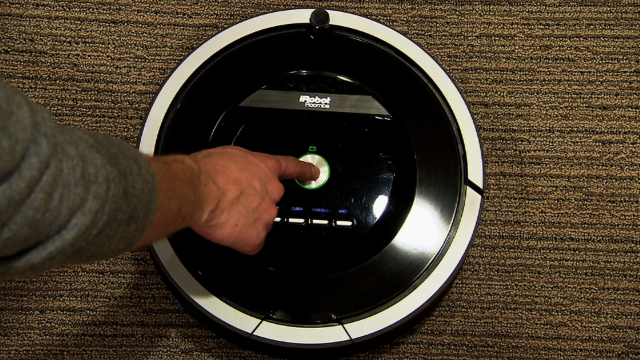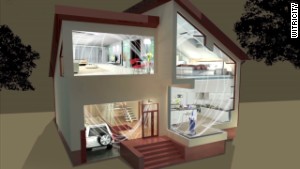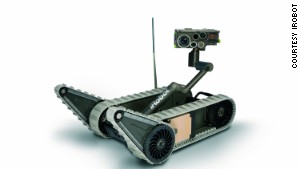
Inevitably the question arises: "What was your first robot?"
For many -- 10 million, in fact -- the answer will be Roomba. The mini vacuum cleaning robot, launched in 2002, has become an everyday fixture in homes across the world -- earning pet-names from affectionate owners and a unique place
among the internet's viral cat videos. Is wireless electricity within reach?
Is wireless electricity within reach?
 Can spider silk help you self-heal?
Can spider silk help you self-heal?
Colin Angle, who co-founded manufacturers iRobot
in 1990 with fellow MIT alums Rodney Brooks and Helen Greiner, hails
Roomba as "the world's first practical home robot." The company is now
hoping to infiltrate the boardroom with its wandering "AVA" telepresence robot, and the battlefield with its line of defense machines.
Angle sat down with CNN's Nick Glass to talk about making the sci-fi world of robots a reality.
CNN: What got you into robotics?
Angle: I had grown up
with Hollywood concepts of robots, and the labs that Dr Brooks and I
worked in were focused on trying to make it real.
In fact, our first
business model was to send a robot to the moon and sell the movie
rights. We actually got quite far. It didn't ultimately succeed but it
did get us going, and the Spirit and Opportunity rovers were impacted by the work we'd done. It was very cool but not a great business.
How did you go against the movies' concepts of robots?
Hollywood likes to imagine robots as mechanical copies of ourselves -- which is a terrible idea.

iRobot's newest Roomba 880 vacuum cleaning robot
What did everyone think robot vacuuming was going to be? Well, they think Rosie the Robot from "The Jetsons," a human robot that pushed a vacuum. That was never going to happen.
We know that robot
vacuuming was top-of-mind in how robots were going to help our lives.
Our challenge was that we knew how to make the intelligence inexpensive
-- but we didn't know how to vacuum.
How did you learn to make Roomba?
We entered the toy
industry: we partnered with Hasbro building robot baby dolls and robot
dinosaurs. They taught us how to manufacture very complicated electric
mechanical things at a low price.
We partnered with Johnson Wax, the guys that make the industrial cleaning machines, and we built giant robot cleaning machines.
If you think about what robots are supposed to do in our future, we're just about half of the way there.
Colin Angle, co-founder iRobot
Colin Angle, co-founder iRobot
We were also building
robots for the Pentagon to clear minefields. Using that intelligence
technology actually gave us the algorithms which Roomba uses to make
sure [your home] is thoroughly vacuumed.
How did you name your machine?
Naming is something not necessarily best left to an engineering organization.
We had a contest inside
iRobot to figure out what we should name the robot and the best we
brilliant engineers could come up with was the "Cyber Suck."
What's the future?
If you think about what
robots are supposed to do in our future, we're just about half of the
way there. They can vacuum, they can scrub your floors -- but what about
my laundry? What about all these other things that robots are supposed
to do?

The iRobot SUGV 5, one of the company's military-application robots.
What's the next big
need? Well, I think it has to do with extending independent living:
allowing our ageing demographic to live independently in their homes for
longer.
What will the robot home of the future look like?
You may have a menagerie
of robots that move around and do things: you may want a robot to bring
you a beverage. You're not going to talk to your vacuum cleaning robot:
in fact you may never see your vacuum cleaning robot because ideally
you come home every day and your floors are freshly vacuumed.
You may have this robot
whose mission in life is to interact with you: it can be a security
guard, it can be a robot that a doctor could beam-in and control... [to]
see your daughter who has scraped her knee.
There's this human interface robot which ultimately will be at the epicenter of this robot enabled home.
0 comments:
Post a Comment